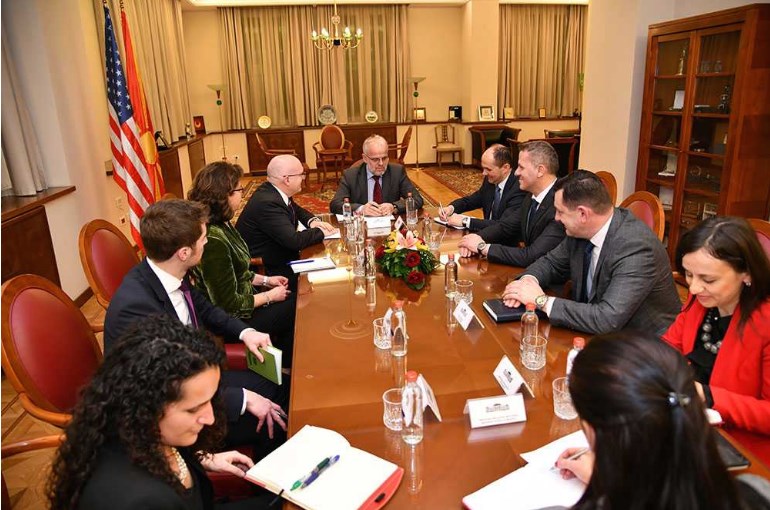Macedonia’s Parliament Speaker Talat Xhaferi and Civilian Deputy and Political Adviser to the Commander of the United States European Command Philip Reeker commended Monday in Skopje the excellent relations between the two countries, which signed a Declaration of Strategic Partnership and Cooperation in 2008.
Xhaferi, according to the parliamentary press service, thanked the US support for our efforts from independence to date through various USAID projects, but also for the support we receive from NDI and IRI in building a democratic and inclusive society.
He informed the interlocutor about the current activities in the Parliament related to the package of reform laws with which we expect to set a date for start of negotiations by the EU Council in June this year, as well as for the ratifications of the agreements with the Republic of Bulgaria and the Republic of Greece that put an end to open issues with neighbors and pave the way for Macedonia’s NATO membership.
He also expressed his expectation that the country will become the 30th member of the Alliance by the end of this or early next year, and the speed of the ratification process of the Republic of North Macedonia’s NATO Accession Protocol, as he said, is another confirmation for the past efforts of the current majority in the country.
Ambassador Reeker emphasized that there are many reasons to celebrate the positive developments in the Republic of North Macedonia, because in his opinion, overcoming the name dispute is not only an enormous step for the country, but for the whole region.
He welcomed the ratification process of the Republic of North Macedonia’s NATO Accession Protocol, noting that the US Senate is committed to its faster ratification from the usual procedure and expressed hope that the country will get its rightful place in the Alliance by the end of the year.
Regarding the EU integration process, Ambassador Reeker pointed out that the adoption of a package of reform laws is not just a contribution to the EU process, but is crucial for the future development of the country and that in this process, the opposition must engage appropriately and work for the general good.






Comments are closed for this post.